Wreck creator Ryan J. Brown on ‘big deaths’, trans representation, and dream cameos
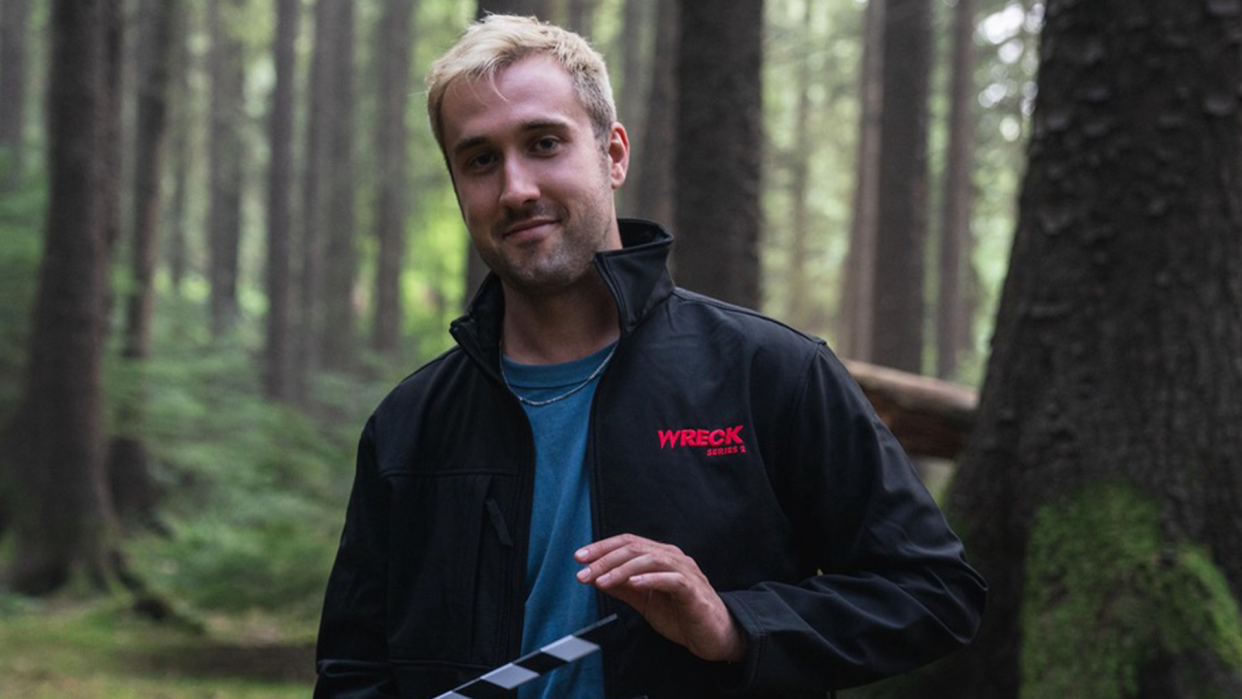
“We need more queer stories that aren’t just about the queerness,” the writer and creator of the BBC horror-slasher-comedy, Wreck, says as we discuss the series.
Attitude is speaking to Ryan J. Brown while conducting a set visit for series two towards the end of summer 2023. His show returns to our screens on Wednesday (26 March) and picks up six months after the end of series one.
The last we saw of Wreck Jamie (Oscar Kennedy) and Vivian (Thaddea Graham) lead the crew of The Sacramentum cruise ship against officers and Velorum, the company behind an insidious plot. Now, Jamie and co are determined to bring Velorum down by any means.
Both leads, Jamie and Vivian, are queer but the focus is instead on their friendship. In a refreshing turn, none of the series’ queer characters struggle with their identities despite those elements of their characters being present and acknowledged.
In a previous interview ahead of the first series of Wreck, Brown discussed the character of Rosie, played by Miya Ocego, who is trans. At the time he said: “I wanted her to be trans. But I also wanted it to be a conversation that we had,” referencing Ocego. He also said he’d want to properly acknowledge Rosie’s transness in a then potential second series.
Revisiting that Brown tells Attitude that that is happening. “We’ll create a space to acknowledge it without her transness being the center of the storyline. It’s acknowledged and the way in which it’s acknowledged is very nice,” he shares.
In this exclusive interview Brown also touches on the response to series one, the “big deaths” we’ll see in series two, and who his dream cameos would be.
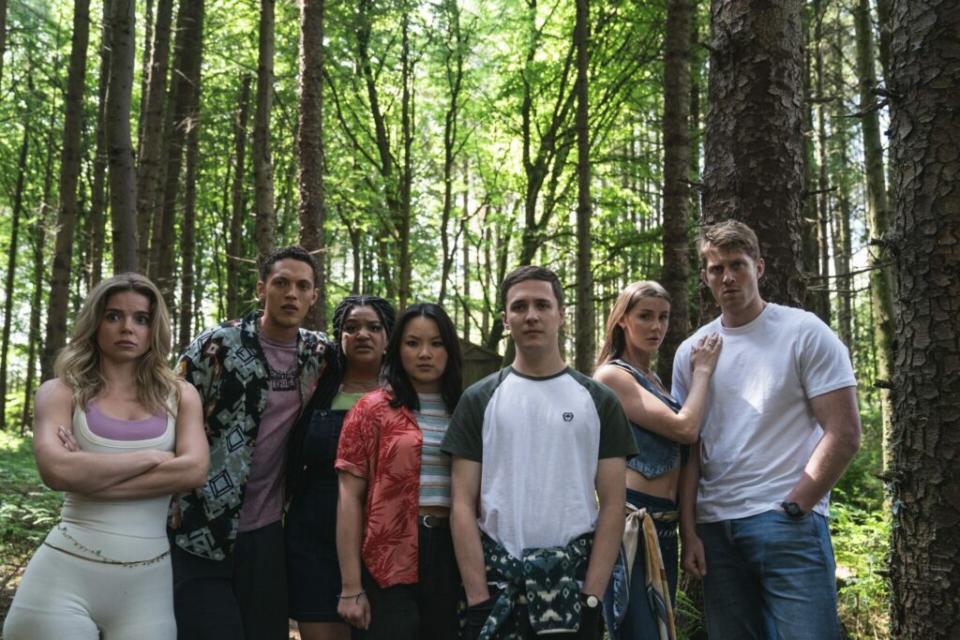
How does it feel to be about to finish series two?
Really good. Everything I wanted it to be and more. We were the first or second BBC drama to get a green light for a second series before the first series had aired, which felt miraculous, and terrifying in equal measure. The BBC backed it so much from the off, so that was nice. But it meant that we didn’t stop working on Wreck. Before series one had even gone out, I was already writing series two. We’ve been at it for a while.
The BBC iPlayer homepage believed in its soul my friends and I had to watch Wreck. One friend asked me if it knew we were gay or was everyone watching it.
I’ve been trying to work out the algorithm of iPlayer. I think she knows. The image was an interesting one. I didn’t want the duck; I wanted the cast. I think some people went in with the wrong idea of what it was going to be. That’s how I knew the press hadn’t watched the whole thing. Having that big twist in episode four or five, you could work out who’d actually watched it. A lot of reviews were like, ‘This is six episodes of a killer duck killing kids on a cruise ship.’ The duck was only in series one for seven minutes.
Where do we start Wreck series two?
We’re six months later. Jamie, Vivian, and Lauren are working to raise awareness about what was happening on the ships. They’ve been shut down at every turn. Velorum is so powerful it’s a bit of a David and Goliath situation. Jamie is trying to rally everybody that was on the ship to help him but most of them have taken huge pay-outs. Jamie gets wind that they’re being picked off which he suspected could happen. And he’s galvanised by a death. And this wellness festival has been on their radar for a while. Jamie’s like ‘We need to get out there and get evidence.’
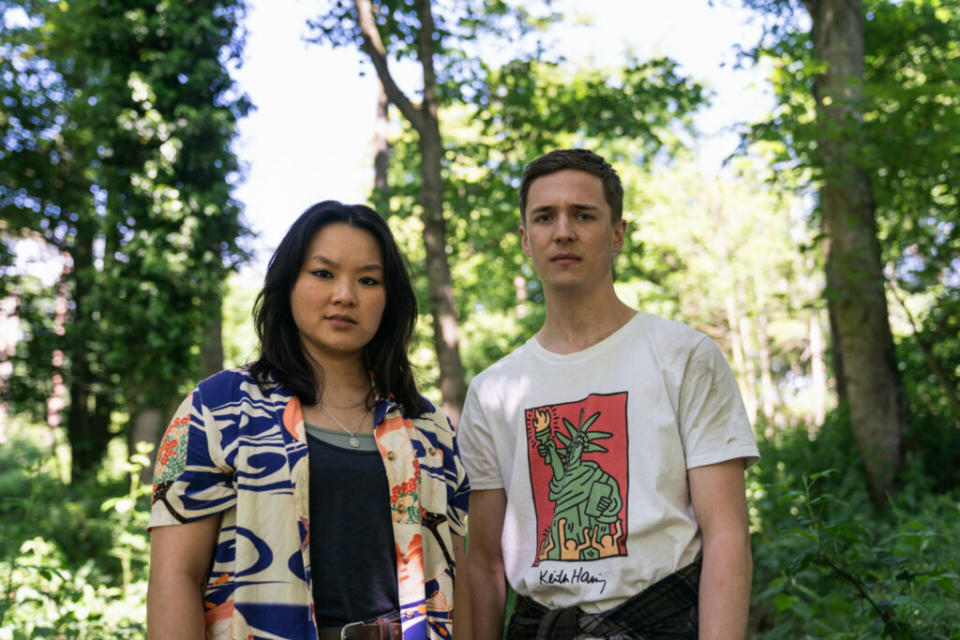
With established characters, has that given you room to play with the horror aspect?
Definitely. We always toyed in series one with the number of deaths. I’m still not sure whether or not we made the right call. I think we should have had some more deaths, but we chose to focus on character as much as we could knowing if we did get a second series, those deaths would hit harder. That has been proven true. Some of my favourite characters don’t make it to the end of series two. But also seeing the relationships deepen or fracture, particularly Jamie and Vivian. They’ve always had the tightest bond. I love writing their friendship. It’s not a friendship you see very often I don’t think, a gay girl and a gay boy. Testing that friendship has been fun.
One thing I love about Wreck is the queerness. Before series one we discussed whether Rosie is trans. You said you might address that in the future. Will we see that?
Absolutely. Miya and I talked about it a lot. We decided that Rosie is trans. What’s lovely is in series one, we don’t acknowledge it. In series two, we’ll create a space to acknowledge it without her transness being the centre of the storyline. It’s acknowledged and the way in which it’s acknowledged is very nice. Someone didn’t realise and is told, and they’re like, ‘Oh, cool.’ There’ll be people watching that will also have that reaction. That feels important, doesn’t it? It feels like there are many different ways to represent people. And it feels like it is one of them.
That’s also what trans people want. They don’t want it to be a big thing.
It’s the biggest thing that pisses me off when usually bigots say they don’t know anyone that’s trans. No, you definitely do. They don’t walk around with signs. Rosie as a character is so powerful as well and so strong. There’s a scene where one of the other characters is like ‘You’re intolerable because you’re one of the strongest people I know, you’ve saved me multiple times. And I don’t know if I’d be able to do the same for you. I know that your life probably hasn’t been an easy one as well. And that makes you even more annoying.’ We acknowledge it in a very Wreck way. It’s really nice seeing Rosie and Cormac’s relationship as well. And more often than not she’s often getting him out of situations.
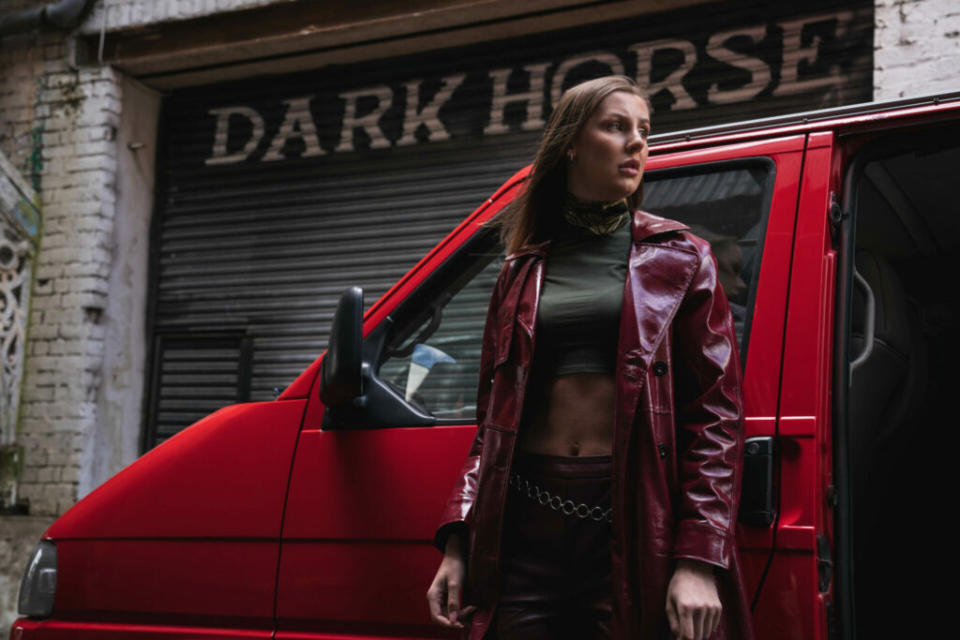
There was something really interesting you said last time about Rosie that because of who she is, she walks into a room and is aware of danger. I think that’s the same for a lot of queer people.
Between series, a lot of the characters have been hiding, particularly Rosie and she says in the first episode ‘I’m done hiding.’ I really hope people see the subtext of the trauma of having to hide. Again, that’s something that’s very relatable to queer people.
With the queerness, do you unintentionally add stuff in based on your own experiences?
Jamie being on the ship to begin with was because his sister, Pippa, was the only one who knew he was gay. I’ve always thought that was something that we did in a really subtle way. But it was the entire driving influence for him, and he doesn’t realise that. I think Jamie in general borrowed so much from my own experiences, and I don’t realise I’m doing it sometimes. His insatiable need to make things right where there’s wrong. That is something I can relate to. When you’ve grown up with so much wrong being thrown at you, your need to fix is great. That’s what’s going on with him.
Jamie’s challenged in series two in a huge way. Greg Austin is playing Joseph, a therapist who’s working with the festival guests. He and Jamie have a very interesting relationship. It’s intense to watch, there are shades of Call Me By Your Name in there. Over the course of the series, Joseph recognises this need in Jamie to make everything right. He is also queer, but he may also be very dangerous. And that’s something Jamie battles with which is quite sexy to watch. It’s really beautiful to see him understand himself. And because of the setting, people find themselves albeit through traumatic experiences. It does actually allow a lot of introspection, especially for Jamie and Vivian, who suffered terribly in series one.
You’ve talked about having a big plan for Vivian in particular. Where does she go in this series?
She is in a different place to Jamie. She just acquired a lot of trauma from series one. And she’s struggling to move on from that and is in a reckless place. There’s this gear change where you’re like, ‘We haven’t been keeping an eye on Vivian she’s been dealing with this’ as so many people do internally, she’s not a sharing type. We didn’t drop that storyline, that horrible thing that happened to her, and expect her to just move on. Similar to Jamie, Vivian meets somebody in series two who recognises her. There’s a new love interest who audiences will go that makes so much fucking sense. There’s a shared grief that allows them to open up and heal together.
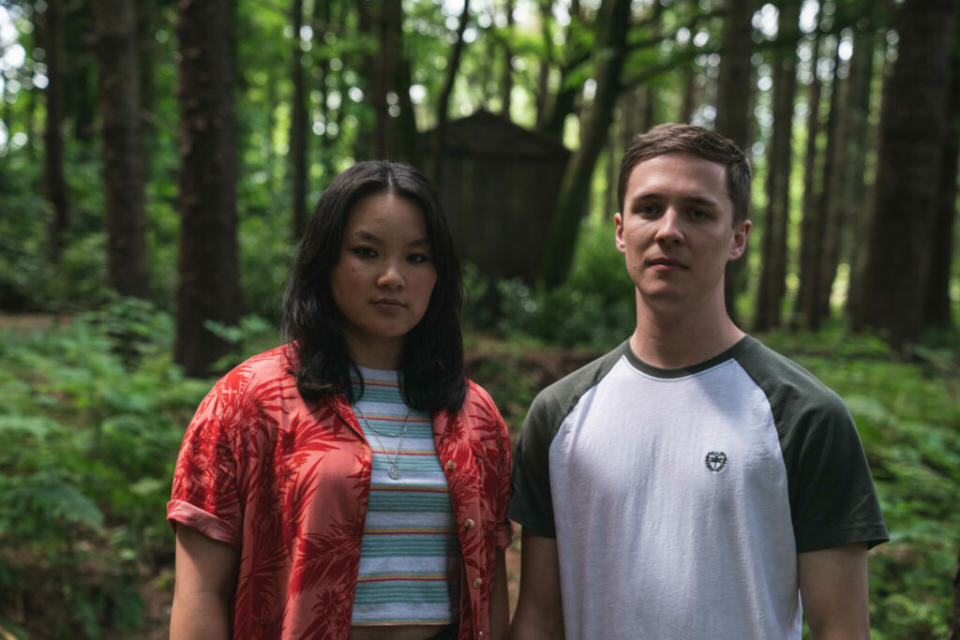
It always seems that you’ve had a really clear idea of what the show is and isn’t. Has that always been the case? Especially with the themes of sexuality and gender.
We need more queer stories that aren’t just about the queerness. I have another series that I’m working on at the minute which is going in the right direction. It’s not a horror series, it’s a black comedy. I’m carrying that through all my work, I think. And with Wreck, it’s been really nice because it has been my first series so there’s been lots of happy discoveries. My mission statement was always to create a show with powerful queer leads where the story isn’t about their sexual identity. But also, they are empowered by their queerness. Found family, as well, that’s always been important to me. I loved shows like that growing up like Buffy the Vampire Slayer. I found a lot of solace in those misfits.
You’re a big horror fan. Is there a reference you haven’t made yet that you would love to?
Yeah, we’ve got quite a few in series two. There are definitely some dream cameos. Mark Patton, the lead from Nightmare on Elm Street, whom Jamie is named after, got in touch to say how much he loved the show, which was really cool. It got me thinking it would be amazing to have more cameos from horror icons.
What are you looking forward to people seeing most?
I think those big deaths. I don’t think people will see a lot of those coming. Also, just the family reunited from series one. Also some of our new characters like Niamh Walsh, who plays Devon Devereaux, the daughter of the CEO of Velorum. She’s an icon and the character is so fun to watch. She’s like Gwyneth [Paltrow] meets Aileen Wuornos, a complete psychopath. There’s just a lot of new characters that are so incredible.

Any ideas about what could happen in a potential third series?
There’s so much story, we need to end it properly. I found with series one, being a BBC Three series, you’re competing against the big Netflix shows. And our target audience doesn’t necessarily go to iPlayer, they go to Netflix, which is a real shame, because I think we’re doing something quite original. The great thing about having a series two is there’ll be this renewed emphasis on going back to watch series one, which you don’t always get. I think it’ll be a show that will forever be growing an audience, but it will take time.
Isn’t a cult following quite a common thing with horror?
I think it is. Sometimes you have to accept that’s the way it’s going to go. What’s nice with Wreck, so many people have said to me horror isn’t their thing, but this was a really good entry point. I’m just hoping they don’t flee in series two when it gets really insane. Although in the first episode alone, we kill more people than we do in the entirety of series one. It’s really shocking but never gratuitous.
All episodes of the second series of Wreck will launch on the BBC iPlayer on Tuesday 26 March at 6am ahead of the launch on BBC Three at 10pm.
The post Wreck creator Ryan J. Brown on ‘big deaths’, trans representation, and dream cameos appeared first on Attitude.


